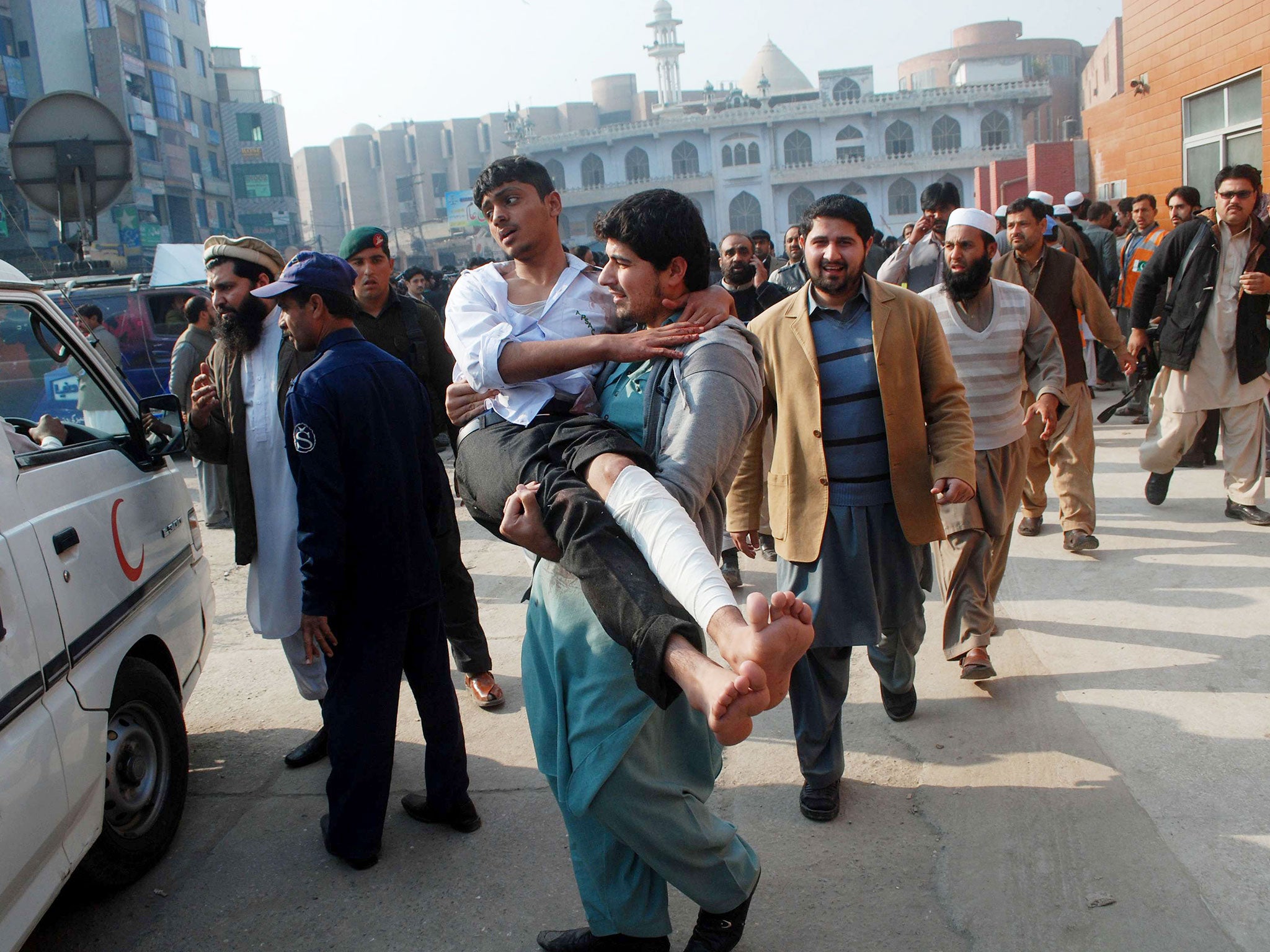Pakistan: Three years after 140 died in the Peshawar school massacre, what has changed?
Some labelled the attack 'Pakistan’s 9/11 moment'

What was the Peshawar school massacre?
Described as the “massacre of the innocents”, the devastating Taliban attack left at least 141 people dead, including 132 children and nine members of mainly female staff at their Peshawar Army Public School in the north-west of Pakistan.
Seven terrorists burst in and opened fire, killing many of the young victims at point-blank range and detonating bombs around the school.
The world reacted with horror to the deaths of so many children, who ranged in age from eight to 18, with some labelling it “Pakistan’s 9/11 moment” and a call to wake up to the clear and present danger posed by the Taliban.
Who was responsible?
The hardline Islamist gunmen who carried out the attack were all foreign nationals, including a Chechen, three Arabs and two Afghans.
Affiliated with the Tehrik and Taliban Pakistan (TTP) militant movement, all six were killed by the Pakistan Army’s Special Services Group (SSG), who rescued a total of 960 people in an eight-hour operation.
At the time of the attack, the Taliban had been weakened through Pakistani military operations in the region and it was believed the slaughter was carried out in response to the crackdown.
How did Pakistan respond to the atrocity?
The then-Prime Minister Nawaz Sharif and leaders of various political and religious parties were united in their strong condemnation of the abhorrent attack and vowed to do more to wipe out terrorism.
For days following the massacre, Pakistanis in major cities held candlelit vigils, with the initial grief giving way to anger as they took to the streets to demand action against pro-Taliban preachers.
The government restored the death penalty, hanging four militants involved in the Peshawar massacre in 2015, and placing hundreds of prisoners on death row.
Extra security measures were ordered around schools following the slaughter
The man believed to have masterminded the attack, Omar Khorasani, was killed in a drone strike in eastern Afghanistan in October 2017.
Who are the TTP?
The Tehrik-i-Taliban Pakistan is a loose association of various militant groups who oppose the Pakistani state and want to implement Sharia law. Most of the Taliban militants are believed to have their origins in groups sponsored, aided and abetted in some way by the state.
Following the Peshawar atrocity, the Prime Minister recognised the country had appeared ambivalent towards the extremists, and vowed to end the distinction between “good” and “bad” Taliban.
Mr Sharif said of the new approach: “All Taliban are bad Taliban. Extremism of any kind – of thought, action, religious or political extremism – is bad. We have to eliminate them wherever we find them.”
He also vowed to “regulate” madrassa – the teaching of Islam – admitting that unregulated education could be “very dangerous”.
The Taliban has controlled areas in the north-west of Pakistan for recent years, as well as proving a major force in Afghanistan.
Three years on, has anything changed in Pakistan?
Despite the promises in the wake of the massacre, little appears to have been done to drive out the Taliban.
The National Counter-Terrorism Authority was formed eight years ago, but the Pakistani government is accused of failing to properly fund and develop the organisation.
Militant attacks are down in number compared to three years ago, but the minority Shias continue to be targeted by extremist groups.
In spite of the promises to crack down on extremist ideology, supposedly banned sectarian groups are still finding ways to field candidates in local elections and the promised regulation of madrassa has also failed to amount to anything more than words, according to those monitoring the situation.
Join our commenting forum
Join thought-provoking conversations, follow other Independent readers and see their replies
Comments
Bookmark popover
Removed from bookmarks